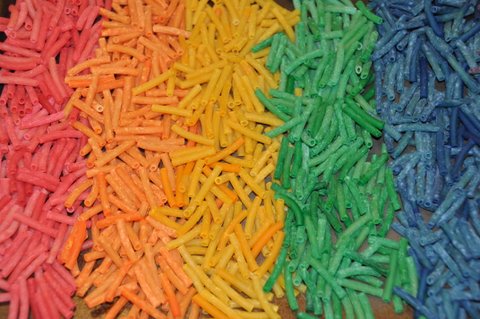What is the Omer anyway?
In the week’s Torah reading, between Pesach and Shavuot, we “count the Omer.” What exactly does that mean, and where is the mitzvah from? And what does the word “omer” really mean anyway?
In this week’s Parsha, Parshat Emor, after the Torah teaches us about the holiday of Pesach in Chapter 23 verses 5-8, it discusses what will happen after Pesach, now that it is spring. The first thing to grow in the spring is barley, and the Torah tells us that when we harvest this first crop, we should bring an offering of thanksgiving to God: an omer of barley – this term refers to a specific measurement of barley. We come to the Temple (Beit haMikdash) with this barley on the 16th of Nissan, the day after the first day of Pesach (which here in verse 11 is called “haShabbat”). Just as we give our bikkurim, first fruits, as an offering in the Beit haMikdash, so too here before we enjoy the new crop of barley, we must acknowledge God in this process. So, “omer” is simply a technical term, the name of the measurement.
Next, the Torah says you must count (see verse 15) 7 weeks from the day of this offering, until the 50th day when you must bring a wheat offering – 2 loaves of bread. Now we’re up to harvesting the wheat, so again we bring an offering to the Beit haMikdash to give thanks. This offering is brought on the holiday of Shavuot, which is also the time for bringing Bikkurim.
So, all in all, we have three mitzvot – to bring an offering of barley, to count 7 weeks and then to bring an offering a wheat, in the form of loaves of bread. By the way, these offerings were not brought by the individual, but rather one kohain did it one time on behalf of all of Bnei Yisrael, and then everyone was allowed to eat their new crops.
So, when we “count the Omer” – days and weeks – we are counting this time between Pesach and Shavuot. Jews have added the idea of counting toward Matan Torah, and in Kabbalah, there’s the idea of working on yourself and improving yourself to get ready for receiving the Torah. And that’s why, maybe, we count UP, not DOWN to this important day.
One last thing: The only other context in which the word “omer” is used in the Torah is in Shmot Chapter 15 when Hashem commands the Jews to take only an omer of manna in the desert daily!
Why does the Torah connect the manna that fell from heaven and sustained the Jews in the desert with the barley offering at the beginning of spring and the harvest season? Any ideas??
Here’s one: There’s a midrash that suggests that when we offer the omer of barley that we’ve planted, grown and harvested, we are saying that we realize it’s just like the manna – straight from God. When food falls from the sky, it’s easy to recognize that it’s from God, but we need to realize that all the food that grows in the fields, that we call “nature”, is, of couse, just as much from God and miraculous as well!








Leave A Comment